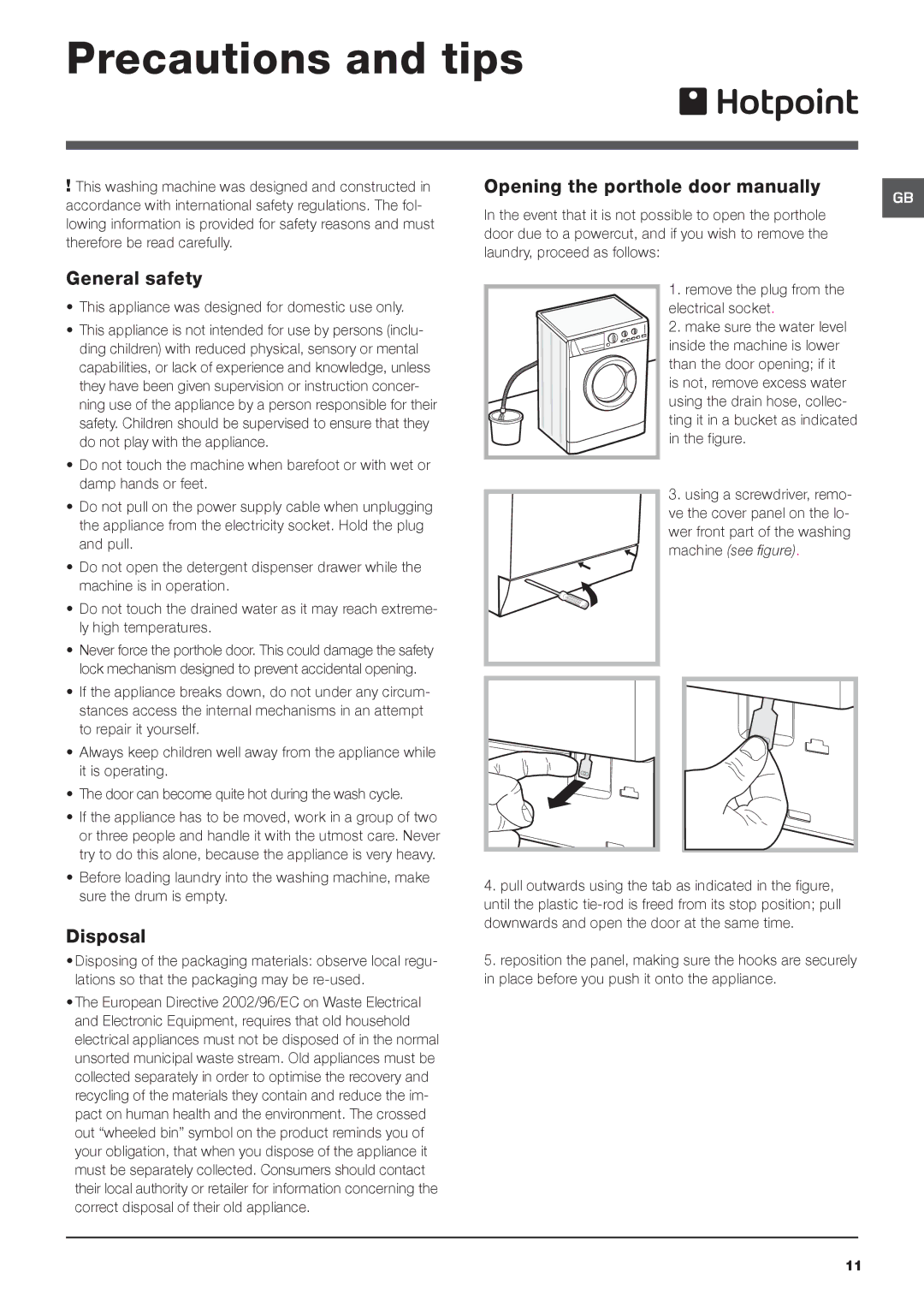
Precautions and tips
!This washing machine was designed and constructed in accordance with international safety regulations. The fol- lowing information is provided for safety reasons and must therefore be read carefully.
Opening the porthole door manually | GB |
|
In the event that it is not possible to open the porthole door due to a powercut, and if you wish to remove the laundry, proceed as follows:
General safety
•This appliance was designed for domestic use only.
•This appliance is not intended for use by persons (inclu- ding children) with reduced physical, sensory or mental capabilities, or lack of experience and knowledge, unless they have been given supervision or instruction concer- ning use of the appliance by a person responsible for their safety. Children should be supervised to ensure that they do not play with the appliance.
•Do not touch the machine when barefoot or with wet or damp hands or feet.
•Do not pull on the power supply cable when unplugging the appliance from the electricity socket. Hold the plug and pull.
•Do not open the detergent dispenser drawer while the machine is in operation.
•Do not touch the drained water as it may reach extreme- ly high temperatures.
•Never force the porthole door. This could damage the safety lock mechanism designed to prevent accidental opening.
•If the appliance breaks down, do not under any circum- stances access the internal mechanisms in an attempt to repair it yourself.
•Always keep children well away from the appliance while it is operating.
•The door can become quite hot during the wash cycle.
•If the appliance has to be moved, work in a group of two or three people and handle it with the utmost care. Never try to do this alone, because the appliance is very heavy.
•Before loading laundry into the washing machine, make sure the drum is empty.
Disposal
•Disposing of the packaging materials: observe local regu- lations so that the packaging may be
•The European Directive 2002/96/EC on Waste Electrical and Electronic Equipment, requires that old household electrical appliances must not be disposed of in the normal unsorted municipal waste stream. Old appliances must be collected separately in order to optimise the recovery and recycling of the materials they contain and reduce the im- pact on human health and the environment. The crossed out “wheeled bin” symbol on the product reminds you of your obligation, that when you dispose of the appliance it must be separately collected. Consumers should contact their local authority or retailer for information concerning the correct disposal of their old appliance.
1. remove the plug from the electrical socket.
2. make sure the water level inside the machine is lower than the door opening; if it is not, remove excess water using the drain hose, collec- ting it in a bucket as indicated in the figure.
3. using a screwdriver, remo- ve the cover panel on the lo- wer front part of the washing machine (see figure).
4.pull outwards using the tab as indicated in the figure, until the plastic
5.reposition the panel, making sure the hooks are securely in place before you push it onto the appliance.
11
